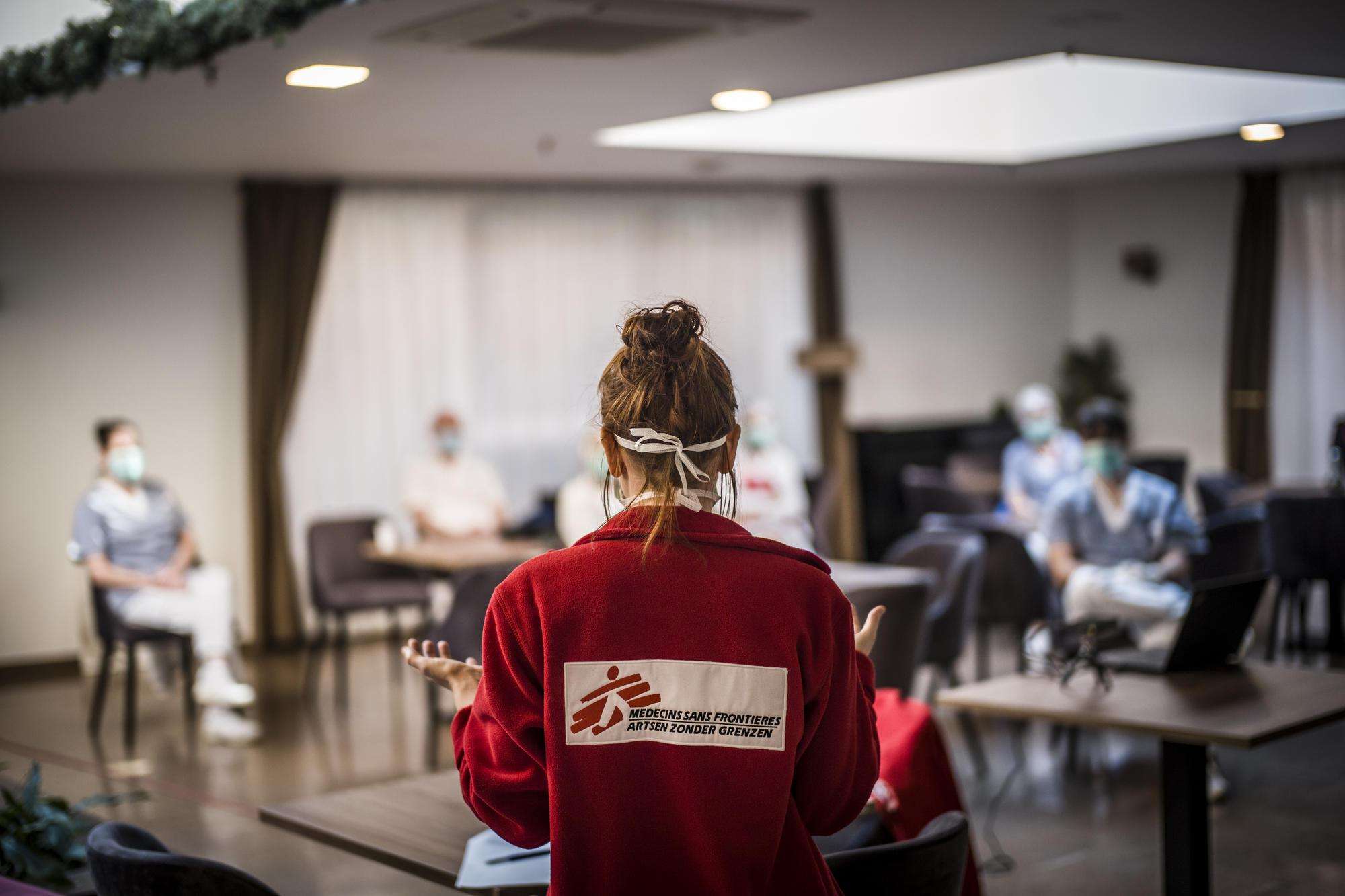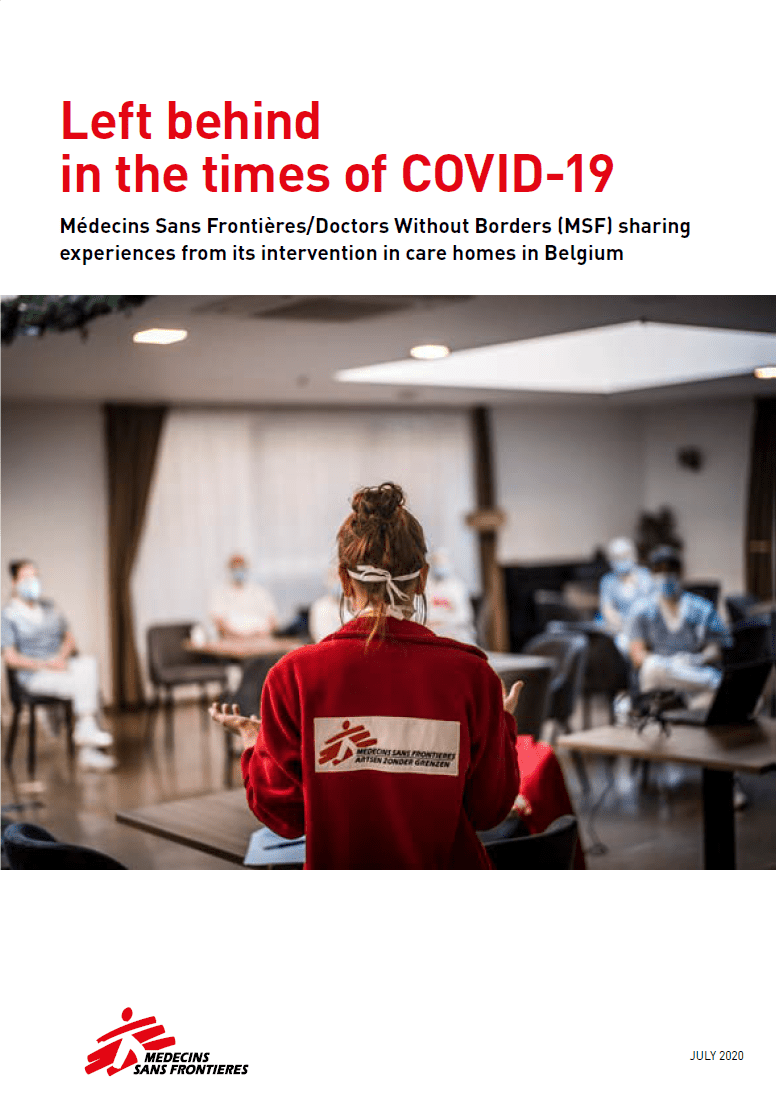NEW YORK/BRUSSELS, JULY 22, 2020—Following an intervention in nursing homes in Belgium during the COVID-19 pandemic, Doctors Without Borders/Médecins Sans Frontières (MSF) released a report—“Left behind in the times of COVID-19”—describing the situation in these facilities and providing recommendations to avoid further harm to elderly people.
“If we want to be better prepared for a second wave of the novel coronavirus, we need to learn lessons from the past months,” said Dr. Bertrand Draguez, president of MSF-Belgium and coordinator of the intervention.
Nursing homes were neglected as Belgian authorities focused solely on preserving hospital capacity because they feared hospitals would be overwhelmed like what happened in Italy and Spain. These homes suffered from a lack of protective equipment, materials, staff, and expertise to fight the pandemic. Consequently, residents paid a high price; by the end of June, 6,200 care home residents had died of COVID-19, which is 64 percent of all COVID-19 deaths in Belgium.
“At the time we did our assessments in care homes, only 54 percent of them had sufficient personal protective equipment," said Stéphanie Goublomme, who managed MSF’s care home project in Belgium. "We found 64 percent lacked proper face masks, and only 42 percent of the staff doing laundry had access to proper protective equipment.”
More than half of the nursing homes we assessed said their staff didn’t have sufficient knowledge about the disease and the risk of infection.
Additionally, the possibility to refer patients from these homes to external medical services like hospitals decreased significantly as hospitals were full with COVID-19 patients. Before the crisis, 86 percent of nursing home residents who needed a hospital referral were admitted, but this dropped to 57 percent during the pandemic.
“Almost a third—30 percent—of the care homes we visited told us not even all their emergency calls got an adequate answer,” Goublomme said. “The number of visits by general practitioners to care homes decreased by 50 percent. That’s worrying because it had a clear impact of the quality of care for the residents.”
Nursing home staff were overwhelmed and had to work in extreme conditions, which led to an increase of mental health problems and the appearance of post-traumatic stress symptoms. This was observed in staff as well as residents.
“There’s no time to lose,” Draguez said. “We need to tackle the specific problems of care homes in a fast, practical, and effective way—both for the staff and for the residents. This is the only way to avoid that our elderly will again have to pay the price for our indifference.”
In the United States, MSF is currently working in nursing homes in Michigan, where facilities are facing many of the same challenges.





